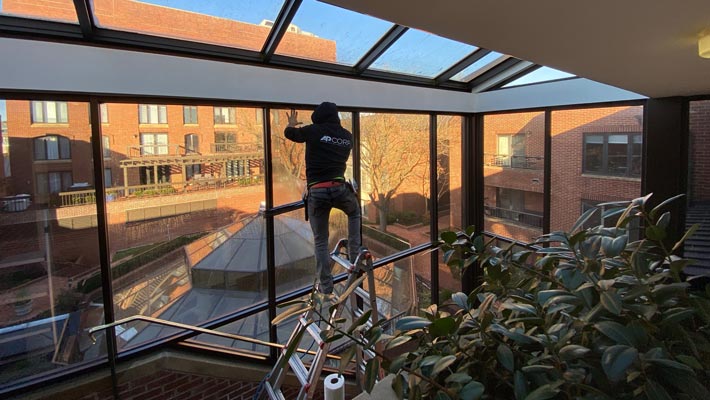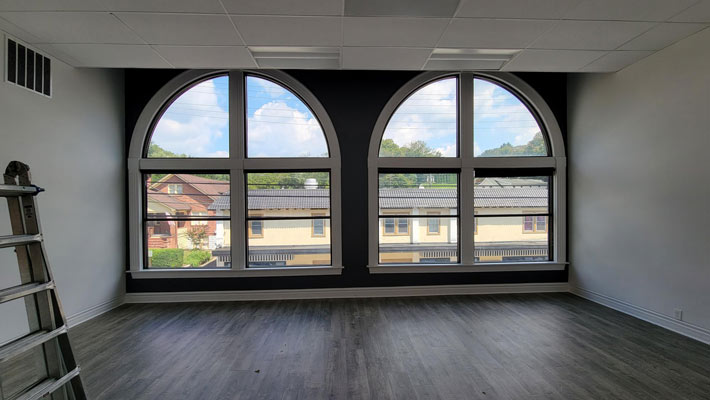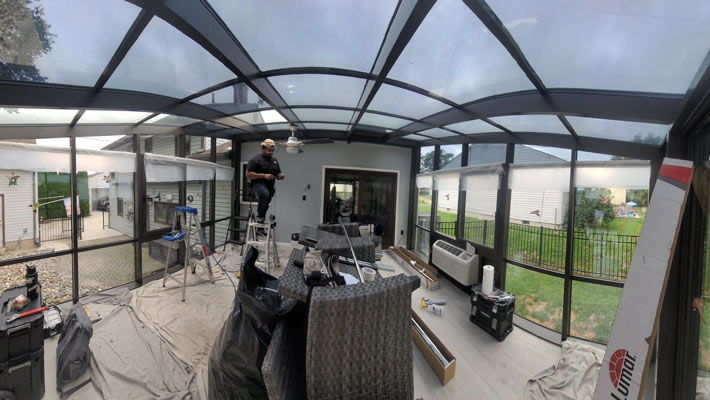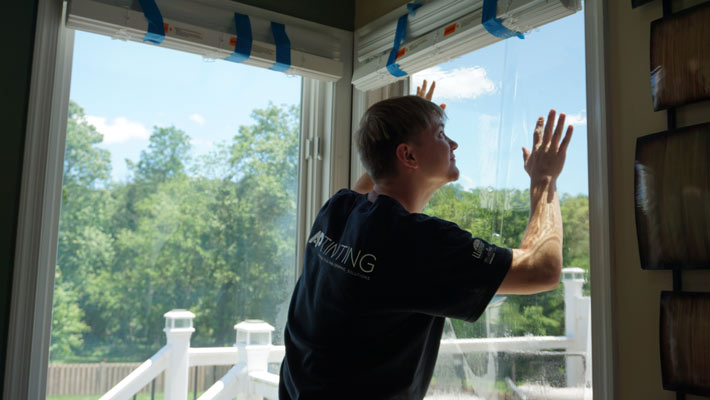Comparing Annealed vs. Tempered Windows
Whether you’re on the market for new windows, or want to apply tint to existing, it’s important to know which type of glass is better. Here we will help you with comparing annealed vs. tempered windows so that you can make the best decision for your project.

What is the Difference Between Annealed and Tempered Glass?
The basic difference between annealed and tempered glass is the speed at which the glass is cooled. When glass is made, the materials used in its creation are heated up to form liquid glass. Then this liquid glass is formed into the glass sheets we use for windows. Well during the cooling phase, they can be slowly cooled (making annealed glass) or rapidly cooled (making tempered glass).
What is Annealed Glass?
Annealed glass is a standard type of glass used in windows. During its creation it is slowly cooled to form the glass pane. Once installed, if annealed glass breaks it fractures into large shards of glass. In terms of safety, annealed glass is not exactly the ‘safe’ type of glass because of how it shatters when broken. In fact, new construction rarely uses this type of glass anymore.
What is Tempered Glass?
Tempered glass is manufactured through a process of rapid heating and cooling. It is a stronger glass that can not only withstand general physical stressors better than annealed glass, it also withstands extreme heat better. And, if broken, tempered glass will fracture into smaller glass cubes—not dangerous shards.

What type of glass is best for home windows?
Long story short, tempered glass is a better all-around glass. Whether it’s for the glass on your front door, or the glass on your kitchen cabinets, tempered glass reigns supreme. That said, if price is a major concern, you could use annealed glass for lower traffic areas. In fact, most building codes for homes don’t require tempered glass everywhere, just bathrooms, entryways, and any large glass surfaces. Obviously, check your local building codes.
What type of glass is best for an office environment?
For any type of business, you want to only use tempered glass. This is because the overall risk of broken annealed glass is too high. The shards of glass produced when annealed glass is broken can lead to serious—even fatal—injuries. In the business world, this leads to unnecessary risk which could be easily avoided. If replacing your annealed glass isn’t an option, safety window film should be applied.

How can I make my current windows safer?
All of the above said, let’s be honest—no one wants to spend all that money to replaced their windows. So what can you do? Well if you’re dealing with a code issue, like annealed glass windows in a bathroom, there are some workarounds available to you. Safety window films can be applied to existing windows to improve their strength and safety. These window films achieve this by encapsulating the window—so if it shatters all the pieces stay in place.
Using Safety Window Film for Annealed Glass Windows
If you have annealed glass in your home or office you can use safety film to make the glass safer. This safety film is applied to the existing window and effectively encases the window in a protective layer. This film does not stop glass from breaking—instead it prevents the broken glass from falling out of the window frame. Put differently, instead of 40 sharp glass shards spread around your floor, the safety film keeps all those broken shards held up so you’re safe from cuts.
Using Safety Window Film for Tempered Glass Windows
Installing window films on tempered glass windows is also actually a great idea. While tempered glass is more resistant to any damage, and it won’t fracture into dangerous glass shards, it can and will still break. Safety window film is there to not only provide additional strength to prevent breakage, but also keep all those thousands of popcorn sizes pieces of glass from scattering around your space. Put differently, clean-up is a lot easier.

Can I tint annealed glass?
Yes, you can definitely tint annealed glass. The only time problems or issues will arise will be when the type of window tint used is not rated for your type of glass. As an example, certain neutral window tints or ceramic window tints can hold a lot of heat from the sun. This heat can cause the windows to spontaneously shatter. This is much more common in annealed glass because they are not treated to withstand as much heat as tempered glass.
Can I tint tempered glass?
Absolutely. When we go to our client’s homes to measure and check their windows, when we see that they are tempered windows we know the options available to us are much greater. Tempered glass, due to the way it is made, is extremely resistant to heat. Therefore, tempered glass windows can withstand some of the window films which capture more heat instead of simply reflecting it.
